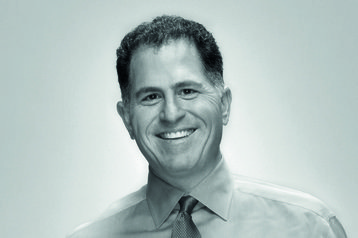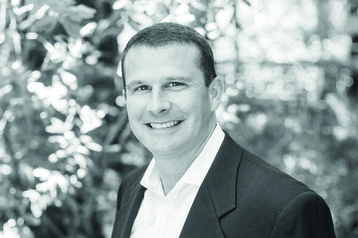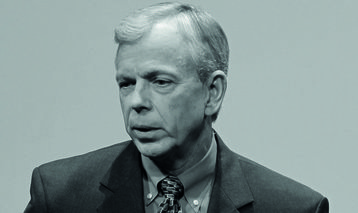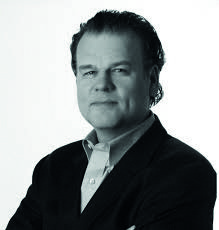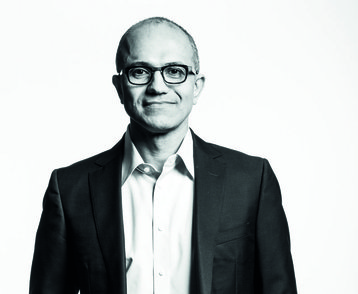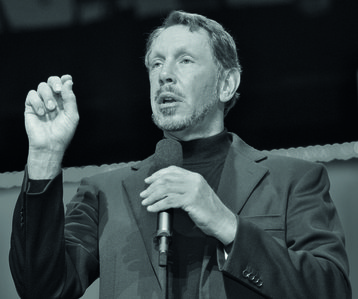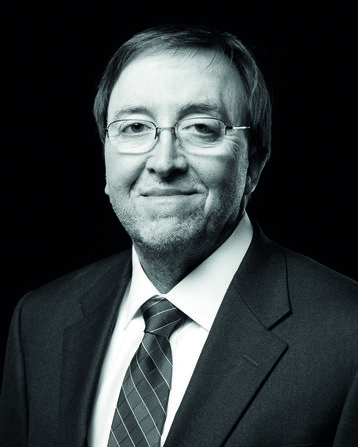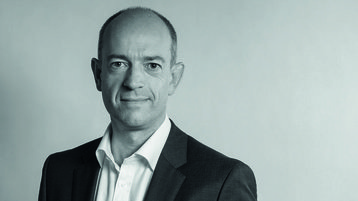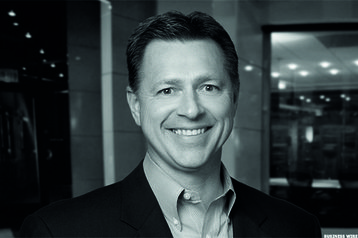Here’s our pick of the mergers, acquisitions and spin-outs from 2016-2017, which will have the most impact on the data center industry
- Dell completes $60 billion merger with EMC
- Verizon completes delayed $4.8bn acquisition of Yahoo core
- Emerson Network Power spins off to become $4bn Vertiv
- Equinix buys Verizon data centers for $3.6bn
- GTT to buy Hibernia Networks for $590M
- Microsoft buys LinkedIn for $26.2 billion
- Oracle to buy NetSuite for $9.3bn
- Centurylink to buy Level 3 for $25bn, and sell data centers
- SoftBank to buy ARM for £24.3bn
- Equinix buys Telecity for $3.8bn, sells eight sites To Digital Realty
This article appeared in the Feb/March issue of DCD Magazine
Dell completes $60 billion merger with EMC
Dell’s merger with EMC, the largest tech merger in history, was completed in September 2016 - just under a year after it was announced by CEO Michael Dell. The combined company has some $74 billion in revenue.
The deal takes Dell in the reverse direction of peers such as HP, which has been spinning off non-core businesses including services and software. Dell now owns EMC’s core storage business, as well as its subsidiaries, including cybersecurity firm RSA, cloud company Pivotal and virtualization giant VMware - although VMware remains a separate company, held via a tracking stock.
Dell became a privately-owned company in 2013, delisting from stock exchanges to gain freedom to take new directions. The merger was by Silver Lake Partners among others.
- Dell completes $60 billion merger with EMC
- Verizon completes delayed $4.8bn acquisition of Yahoo core
- Emerson Network Power spins off to become $4bn Vertiv
- Equinix buys Verizon data centers for $3.6bn
- GTT to buy Hibernia Networks for $590M
- Microsoft buys LinkedIn for $26.2 billion
- Oracle to buy NetSuite for $9.3bn
- Centurylink to buy Level 3 for $25bn, and sell data centers
- SoftBank to buy ARM for £24.3bn
- Equinix buys Telecity for $3.8bn, sells eight sites To Digital Realty
This article appeared in the Feb/March issue of DCD Magazine
Verizon completes delayed $4.8bn acquisition of Yahoo core
Once valued at $100 billion, Yahoo could only command a price of $4.8 billion when telecoms company Verizon announced it would buy it in July 2016 - and since then the deal has looked rocky.
Yahoo was founded in 1994, and was the most popular Internet portal for several years before losing to Google. In 2008, Yahoo fought off a $44 billion takeover by Microsoft.
Marissa Mayer (pictured) was appointed CEO in 2012 and had limited success halting the decline with a strategy of buying startups such as Tumblr.
Verizon announced it would buy Yahoo’s core in July 2016. Yahoo’s large stake in China’s Alibaba and Yahoo Japan will continue as Altaba.
The Verizon deal was delayed after two record breaking security breaches were announced, one affecting up to 500 million Yahoo accounts, the other a cool billion accounts.
As of April 2017, the deal has gone through. Yahoo and AOL have joined a new division called “Oath”. Marissa Mayer is understood to be moving on.
- Dell completes $60 billion merger with EMC
- Verizon completes delayed $4.8bn acquisition of Yahoo core
- Emerson Network Power spins off to become $4bn Vertiv
- Equinix buys Verizon data centers for $3.6bn
- GTT to buy Hibernia Networks for $590M
- Microsoft buys LinkedIn for $26.2 billion
- Oracle to buy NetSuite for $9.3bn
- Centurylink to buy Level 3 for $25bn, and sell data centers
- SoftBank to buy ARM for £24.3bn
- Equinix buys Telecity for $3.8bn, sells eight sites To Digital Realty
This article appeared in the Feb/March issue of DCD Magazine
Emerson Network Power spins off to become $4bn Vertiv
Emerson Network Power developed within Emerson Electric through acquisitions dating back to the 1980s, including Liebert, Chloride and Knurr.
In July 2015, Emerson Electric announced a plan to spin off the division as an independent $5 billion business, hoping to reverse a decline in revenue.
The name Vertiv was announced in April 2016, but the spin-off became a sale as Platinum Equity announced a deal to buy the division for $4 billion in August 2016.
The whole deal, including the new name, finally completed at the end of 2016. A new CEO was appointed: Rob Johnson who formerly led infrastructure power firm American Power Conversion (APC), which was bought by Schneider Electric for $6.1 billion in 2007.
- Dell completes $60 billion merger with EMC
- Verizon completes delayed $4.8bn acquisition of Yahoo core
- Emerson Network Power spins off to become $4bn Vertiv
- Equinix buys Verizon data centers for $3.6bn
- GTT to buy Hibernia Networks for $590M
- Microsoft buys LinkedIn for $26.2 billion
- Oracle to buy NetSuite for $9.3bn
- Centurylink to buy Level 3 for $25bn, and sell data centers
- SoftBank to buy ARM for £24.3bn
- Equinix buys Telecity for $3.8bn, sells eight sites To Digital Realty
This article appeared in the Feb/March issue of DCD Magazine
Equinix buys Verizon data centers for $3.6bn
Mobile operator Verizon is in the process of selling around 60 data centers to colocation provider Equinix.
Verizon, headed by Lowell McAdam, bought Terremark in 2011 for $1.4 billion and built up its data center business, adding a cloud service called Verizon Cloud. At the end of 2015, rumors began circulating that the business was up for sale, along with other assets including MCI Communications.
Equinix emerged as the purchaser in late 2016, with an estimated price of $3.5 billion. In January 2017, the company was reported to be raising around $1 billion to finance the deal.
The deal coincided with other telcos divesting themselves of data center real estate, in an apparent realization that running data centers is different to their core business.
- Dell completes $60 billion merger with EMC
- Verizon completes delayed $4.8bn acquisition of Yahoo core
- Emerson Network Power spins off to become $4bn Vertiv
- Equinix buys Verizon data centers for $3.6bn
- GTT to buy Hibernia Networks for $590M
- Microsoft buys LinkedIn for $26.2 billion
- Oracle to buy NetSuite for $9.3bn
- Centurylink to buy Level 3 for $25bn, and sell data centers
- SoftBank to buy ARM for £24.3bn
- Equinix buys Telecity for $3.8bn, sells eight sites To Digital Realty
This article appeared in the Feb/March issue of DCD Magazine
GTT to buy Hibernia Networks for $590M
American communications firm GTT is buying Hibernia Networks, a submarine cable operator best known for the Hibernia Express linking the US and Europe via Ireland.
GTT has a network connecting 100 countries with 250 points of presence (PoPs), while Hibernia has a smaller network of 200 PoPs in 25 countries.
Hibernia’s transatlantic network was originally built by Tyco, which went bankrupt in 2001.
The 4,600km Hibernia Express cable system, which came online in 2015, is one of a number of new transatlantic cables, and claims the fastest transit time (60ms) between New York and the UK.
Hibernia’s CEO since 2004 has been Bjarni Thorvardarson.
- Dell completes $60 billion merger with EMC
- Verizon completes delayed $4.8bn acquisition of Yahoo core
- Emerson Network Power spins off to become $4bn Vertiv
- Equinix buys Verizon data centers for $3.6bn
- GTT to buy Hibernia Networks for $590M
- Microsoft buys LinkedIn for $26.2 billion
- Oracle to buy NetSuite for $9.3bn
- Centurylink to buy Level 3 for $25bn, and sell data centers
- SoftBank to buy ARM for £24.3bn
- Equinix buys Telecity for $3.8bn, sells eight sites To Digital Realty
This article appeared in the Feb/March issue of DCD Magazine
Microsoft buys LinkedIn for $26.2 billion
In June 2016, Microsoft announced its plan to buy professional networking site LinkedIn for $26.2 billion.
LinkedIn has 433 million users, and runs its own data center network, with sites in the US and Singapore.
Microsoft runs its Azure cloud service on a network of its own data centers, with 32 regions around the world and plans for six more.
Both companies have developed in-house data center IT and rack technologies, and shared them.
Microsoft has shared server specifications, through the Open Compute Project (OCP) and proposed a distributed UPS design. It has also shared Project Olympus - a serverdesign which is partially finished to encourage further customization by partners.
LinkedIn has created its own data center 19” rack design, called Open19, intending to give the benefits of OCP’s Open Rack without moving to a 23.5” wide rack. The company has also created its own network devices including a top-of-rack switch called Pigeon.
As the merger nears completion, Microsft has hired a new CTO, Kevin Scott from LinkedIn. Scott will report directly to Microsoft CEO Satya Nadella.
- Dell completes $60 billion merger with EMC
- Verizon completes delayed $4.8bn acquisition of Yahoo core
- Emerson Network Power spins off to become $4bn Vertiv
- Equinix buys Verizon data centers for $3.6bn
- GTT to buy Hibernia Networks for $590M
- Microsoft buys LinkedIn for $26.2 billion
- Oracle to buy NetSuite for $9.3bn
- Centurylink to buy Level 3 for $25bn, and sell data centers
- SoftBank to buy ARM for £24.3bn
- Equinix buys Telecity for $3.8bn, sells eight sites To Digital Realty
This article appeared in the Feb/March issue of DCD Magazine
Oracle to buy NetSuite for $9.3bn
Oracle bought cloud business software vendor NetSuite for $9.3 billion in November 2016, after NetSuite shareholders voted to dismiss allegations of a conflict of interest involving Oracle founder Larry Ellison.
NetSuite was founded in 1998 as NetLedger, and its software was briefly licensed as Oracle Small Business Suite. Its acquisition comes as Oracle is engaged in a bid to expand and develop its cloud services.
NetSuite’s small business focus is said to complement Oracle’s strength with large enterprises.
The deal faced criticism as Ellison and his family owned around 45 percent of NetSuite stock.
- Dell completes $60 billion merger with EMC
- Verizon completes delayed $4.8bn acquisition of Yahoo core
- Emerson Network Power spins off to become $4bn Vertiv
- Equinix buys Verizon data centers for $3.6bn
- GTT to buy Hibernia Networks for $590M
- Microsoft buys LinkedIn for $26.2 billion
- Oracle to buy NetSuite for $9.3bn
- Centurylink to buy Level 3 for $25bn, and sell data centers
- SoftBank to buy ARM for £24.3bn
- Equinix buys Telecity for $3.8bn, sells eight sites To Digital Realty
This article appeared in the Feb/March issue of DCD Magazine
Centurylink to buy Level 3 for $25bn, and sell data centers
Communications firm CenturyLink, led by Glen Post, is buying network provider Level 3 for $25 billion, it was announced in October 2016.
The deal adds 200,000 miles to CenturyLink’s fiber network.
Meanwhile, the firm sold its 59 data centers to investors BC Partners and Medina Capital Advisors for $2.3 billion and merged with cyber security startups.
The investors have set up a new company called Cyxtera, to be led by Manuel Medina, one-time leader of Terremark, which was bought and sold by Verizon.
The data center sale was first rumored in late 2015, but finding a buyer was hindered by complicated leases.
- Dell completes $60 billion merger with EMC
- Verizon completes delayed $4.8bn acquisition of Yahoo core
- Emerson Network Power spins off to become $4bn Vertiv
- Equinix buys Verizon data centers for $3.6bn
- GTT to buy Hibernia Networks for $590M
- Microsoft buys LinkedIn for $26.2 billion
- Oracle to buy NetSuite for $9.3bn
- Centurylink to buy Level 3 for $25bn, and sell data centers
- SoftBank to buy ARM for £24.3bn
- Equinix buys Telecity for $3.8bn, sells eight sites To Digital Realty
This article appeared in the Feb/March issue of DCD Magazine
SoftBank to buy ARM for £24.3bn
Japan’s tech giant SoftBank bought British silicon firm ARM Holdings for £24.3 billion in July 2016.
ARM designs the ARM processor cores which are used by multiple chip makers and dominate the mobile device market, thanks to their low energy requirements.
The energy efficiency benefits of ARM-based chips have been the basis for several attempts to dislodge Intel from its market-leading position in data center server silicon, by vendors including AMD, Cavium and Applied Micro.
The acquisition is seen as a bid for SoftBank to dominate the Internet of Things (IoT) market. It has also been asserted that the sale was partly a result of the decision by the UK to leave the European Union.
ARM CEO Simon Segars won DCD’s Business Leader of the Year Award in 2014.
- Dell completes $60 billion merger with EMC
- Verizon completes delayed $4.8bn acquisition of Yahoo core
- Emerson Network Power spins off to become $4bn Vertiv
- Equinix buys Verizon data centers for $3.6bn
- GTT to buy Hibernia Networks for $590M
- Microsoft buys LinkedIn for $26.2 billion
- Oracle to buy NetSuite for $9.3bn
- Centurylink to buy Level 3 for $25bn, and sell data centers
- SoftBank to buy ARM for £24.3bn
- Equinix buys Telecity for $3.8bn, sells eight sites To Digital Realty
This article appeared in the Feb/March issue of DCD Magazine
Equinix buys Telecity for $3.8bn, sells eight sites To Digital Realty
Completing a deal begun in 2015, Equinix has sold eight data centers to rival Digital Realty, a move it was ordered to make to receive permission from EU regulators for its $3.8 billion acquisition of European colocation provider Telecity.
The sale to Digital Realty was ordered when the EU ruled that its acquisition of Telecity would give it too dominant a position in the European colocation space.
Equinix, led by Stephen Smith, made a pre-emptive bid to buy Telecity in 2015, to prevent a merger between Telecity and fellow European provider Interxion.
Eight data centers were sold to Digital Realty, five of them in London. At the same time, Equinix took over a facility in St Denis Paris, which was owned by Digital Realty and leased to Equinix.
- Dell completes $60 billion merger with EMC
- Verizon completes delayed $4.8bn acquisition of Yahoo core
- Emerson Network Power spins off to become $4bn Vertiv
- Equinix buys Verizon data centers for $3.6bn
- GTT to buy Hibernia Networks for $590M
- Microsoft buys LinkedIn for $26.2 billion
- Oracle to buy NetSuite for $9.3bn
- Centurylink to buy Level 3 for $25bn, and sell data centers
- SoftBank to buy ARM for £24.3bn
- Equinix buys Telecity for $3.8bn, sells eight sites To Digital Realty
This article appeared in the Feb/March issue of DCD Magazine


